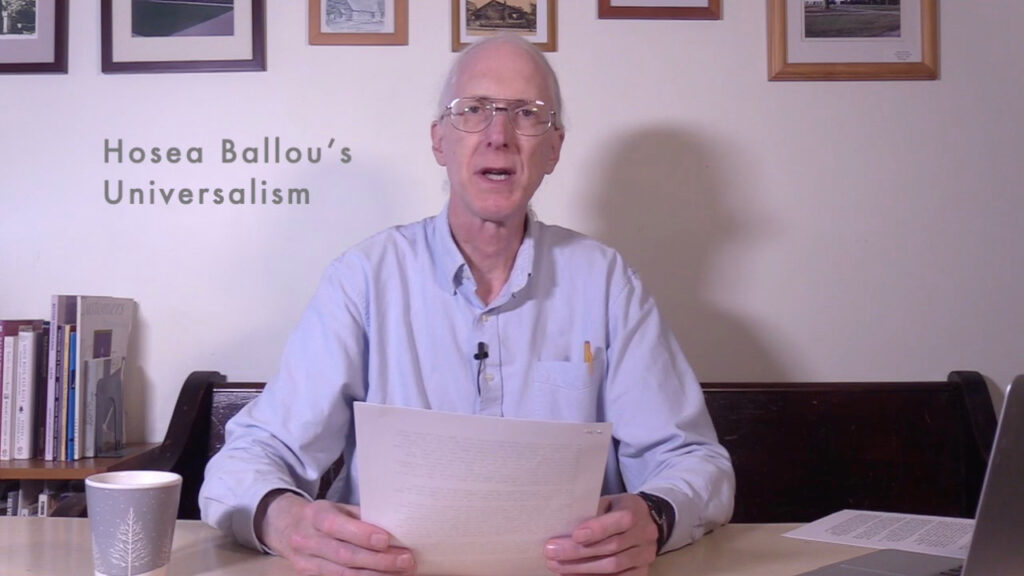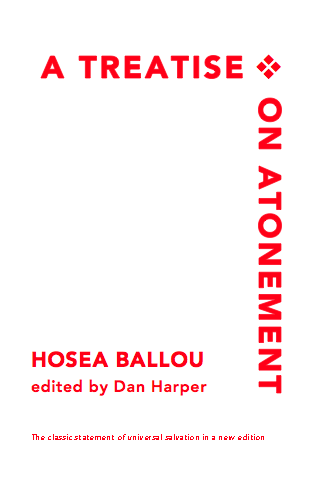Carlton Pearson, the evangelical Christian preacher who in midlife came to accept the happy teachings of universal salvation, died on Sunday. At his death, Pearson was probably the most widely known and most influential person affiliated with Unitarian Universalism.
When Pearson announced to his Tulsa, Oklahoma, congregation that he was a Universalist, many members of the congregation left. He eventually found a home for the remainder of his congregation — and for himself — at All Souls Unitarian Universalist Church in Tulsa.
Back in 2009, I remember hearing Pearson speak at General Assembly. The GA Web Team wrote an excellent account of that event. I remember thinking he was a charismatic, riveting, and convincing speaker. The GA Web Team’s report quotes him as saying, “Jesus didn’t come to protect us from God, but to reconnect us to God.”
Even if Jesus and God aren’t at the center of your religion, this remains a powerful statement in our Western culture. It is a concise refutation of the widespread Western belief in retributive justice. When we drift away from the ultimate goodness of the universe, instead of retribution we need to be reconnected to that goodness.
I don’t recall that Carlton Pearson made much of an impact on General Assembly attendees in 2009. Marlin Lavanhar, senior minister at All Souls, was Pearson’s co-presenter at General Assembly, and Lavanhar talked about how difficult it was for a White upper middle class church to welcome in well over a hundred non-White Universalists, a welcome that included changes in the worship style of the congregation. The Web Team reported:
“Unitarian Universalist churches, Lavanhar said, ‘have a corner on a very small slice of the NPR listening audience.’ He worries that UUism might become so parochial that it dies out. But Tulsa’s second service [with Pearson’s followers] attracts a different, younger, more racially diverse set of people, who come both for the spirit of the service and the message of Unitarian Universalism.”
Pearson continued to espouse Universalist theology for the rest of his life. He remained an affiliated minister at All Souls in Tulsa, and went on to serve at other congregations as well. In the years after his presentation at General Assembly, the majority of Unitarian Universalists — many of whom are White NPR listeners — mostly ignored Pearson. Unitarian Universalists seem to have a difficult time connecting to, or respecting, Pearson’s message of universal love. This, despite Pearson using the theology of universal love to stand up for LGBTQ rights. This, despite (or perhaps because of) Pearson’s ability to reach beyond Unitarian Universalism’s core White upper middle class audience.
So it is that Carlton Pearson, whose spirit-filled happy teachings about universal Love have touched tens of thousands of people, has had little impact on Unitarian Universalism outside of Tulsa, Oklahoma.
But he had an impact on me, and I find I’m deeply saddened at his death.
Carlton Pearson quotes
Pearson, both as an author and a speaker, is eminently quotable. In his memory, here’s a brief selection of his words:
I don’t fear God and if I was going to fear anybody, I’d fear some of [God’s] so-called people because they can be some mean sons of biscuit eaters, as my brother used to say. — Quoted in The Guardian.
God is not angry with humanity. — Quoted in Christianity Today.
Belief compelled through fear is not belief, it is blind and forced obedience. — God Is Not a Christian, Nor a Jew, Muslim, Hindu (2010), p. 32.
I’m the heretic, and I enjoy that, wear that like a badge these days. … It’s like a tattoo that I can’t wash off. — Quoted in Christianity Today.
Fear of God creates more harm than good for the human race. God isn’t angry with [hu]mankind. But because of erroneous concepts of God, most human beings are secretly angry with God. — The Gospel of Inclusion (2009), p. 149.
We do not need to be saved from God; we need to be saved from religion. We need to be saved from perceptions of God that portray Him as an angry deity with a customized torture chamber called hell, managed by a malcontent called the devil, where we may be forever consigned because we didn’t believe, didn’t believe correctly, or didn’t obey. — The Gospel of Inclusion, p. 6.
Christianity (though not exclusively) has become a kind of survival-of-the-fittest ideology. Charles Darwin’s theory of evolution, particularly the hypothesis about the adaptation to the environment, in many ways reflects the dynamics of most religions. It is one thing to adapt to a hostile environment be developing webbed feet, as the Galapagos Islands lizards did; and another thing to resist the environment by attempting to change, confront, or retaliate against it. Religion does both. It attempts to adjust to the hostility it encounters (in this case, the perceived attacks of science or the refusal of more enlightened people to tolerate its sanctioning destructive acts) by changing its story (creationism becomes intelligent design, for example), and at the same time, it promotes a virulent theology in which we must placate not only an angry, violent God but also Her equally vicious and sinister devil. The result is predictable: intelligent, open-minded people of a spiritual disposition are driven away by blind extremism, and what remains are the cowed and the clueless, more terrorized and enslaved than ever. — God Is Not a Christian, Nor a Jew, Muslim, Hindu (2010)
That idea of a ubiquitous, angry God has created a lot of mental illness on Earth. If there’s one thing I wish I could expel from people’s consciousness, it’s the idea of an angry God, that he hates people, not just wants to punish, but as Genesis says, regrets that he made us. That’s a very human-concocted entity that has never existed for a moment. If there is a devil, it would be that God. — Quoted in UU World magazine.
If I say everybody’s going to heaven, then I can’t raise money from you to get me to keep people out of hell. — Quoted by ABC News.
Jesus didn’t come to protect us from God, but to reconnect us to God. — Quoted by the GA Web Team, 2009.


